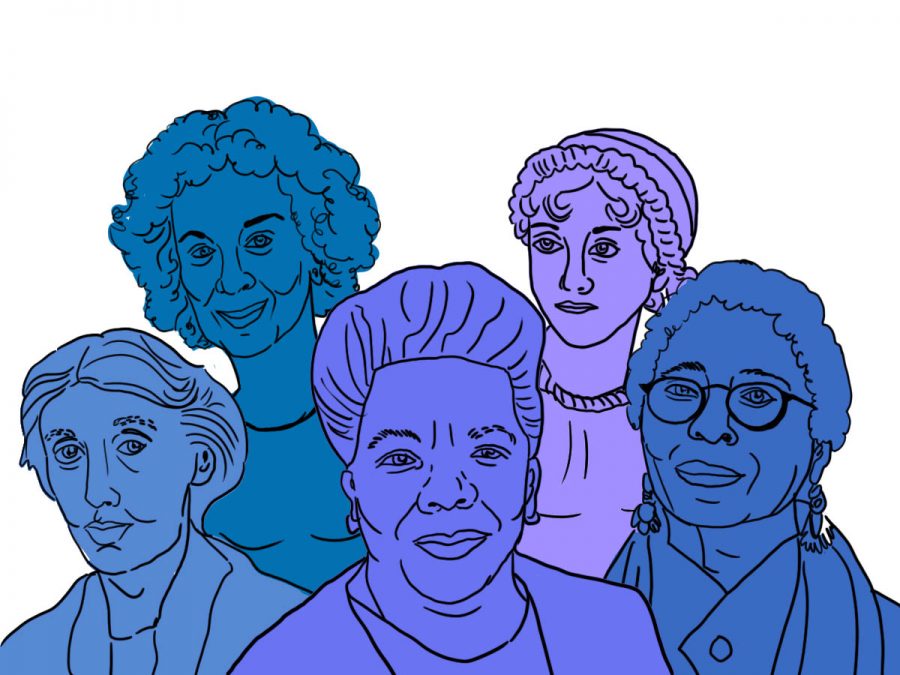Rosalind Franklin discovered the molecular structure of DNA. Huda Shaarawi pioneered the Egyptian feminist movement. Chien-Shiung Wu made contributions to nuclear physics, aiding in the Manhattan Project. Frances Perkins was the first woman appointed to the U.S. Cabinet.
This handful of names belongs to women who impacted the course of history. These women were successful in altering politics, society and science. They developed, researched and rebelled for change. They persisted in their endeavors and became a part of history.
Yet their stories aren’t well-known.
If you can recognize the names and stories of these women, I’m impressed. If you can’t, I’m not surprised. Historically, the viewpoints and successes of women have been tossed aside, lessened or never spoke of. While that may have been acceptable then, it’s definitely unacceptable now.
UT has made strides to include and represent women in history by promoting a more gender inclusive and diverse academic environment. For example, the Department of History has a symposium for graduate students and faculty to present on gender, history and sexuality. However, there is much to improve — the spring 2019 schedule only has five history courses focused primarily on women and their influence.
As such, it is crucial that UT promotes more women, especially minority women, in history. The University should consider opening a symposium focused on women and history and making it tailored specifically for undergraduate students.
Not only would this reach a larger student population, but it would also ensure the stories of the unheard are visible and loud. The point of hearing and learning about women’s historical impact is to promote a well-rounded history, which assures that every story from every perspective is told.
“Stories orient us and act as compasses. But they can also be deceptive, limiting and ultimately harmful,” said Sandy Chang, UT Ph.D. candidate for history and a speaker at the Symposium for Gender, History and Sexuality. “As historians, it’s our job to critically examine how certain national narratives are built on acts of erasure and exclusion. It’s also our job to write stories that better reflect the world in which our historical subjects lived, worked, traveled and loved.”
“So often history is missed and not taught to us,” said Shray Tapiawala, a history and electrical and computer engineering sophomore. “Non-well-rounded history is problematic because it causes people to miss out on a part of history that they may connect to.”
By having a symposium aimed specifically for an undergraduate population, students can feel like they have representation in history. A symposium also provides an opportunity for professors to give extra credit to students and require them to attend, helping students with their academics and their historical knowledge. It also prevents the dangers of a single-story history.
“These ‘single stories’ about women, minorities and the LGBTQ community perpetuate stereotypes, flatten diverse experiences and ultimately rob them of their humanity,” Chang said.
The push toward gender inclusion in history goes beyond just knowing what these women accomplished. Not having this exposure creates the narrative that no one cares what women did for our history and how they changed our futures.
Get to know these women. Learn their stories and impacts. There’s a reason why they changed history. They deserve to have our attention.
Mata is a sophomore psychology major from Houston.





















